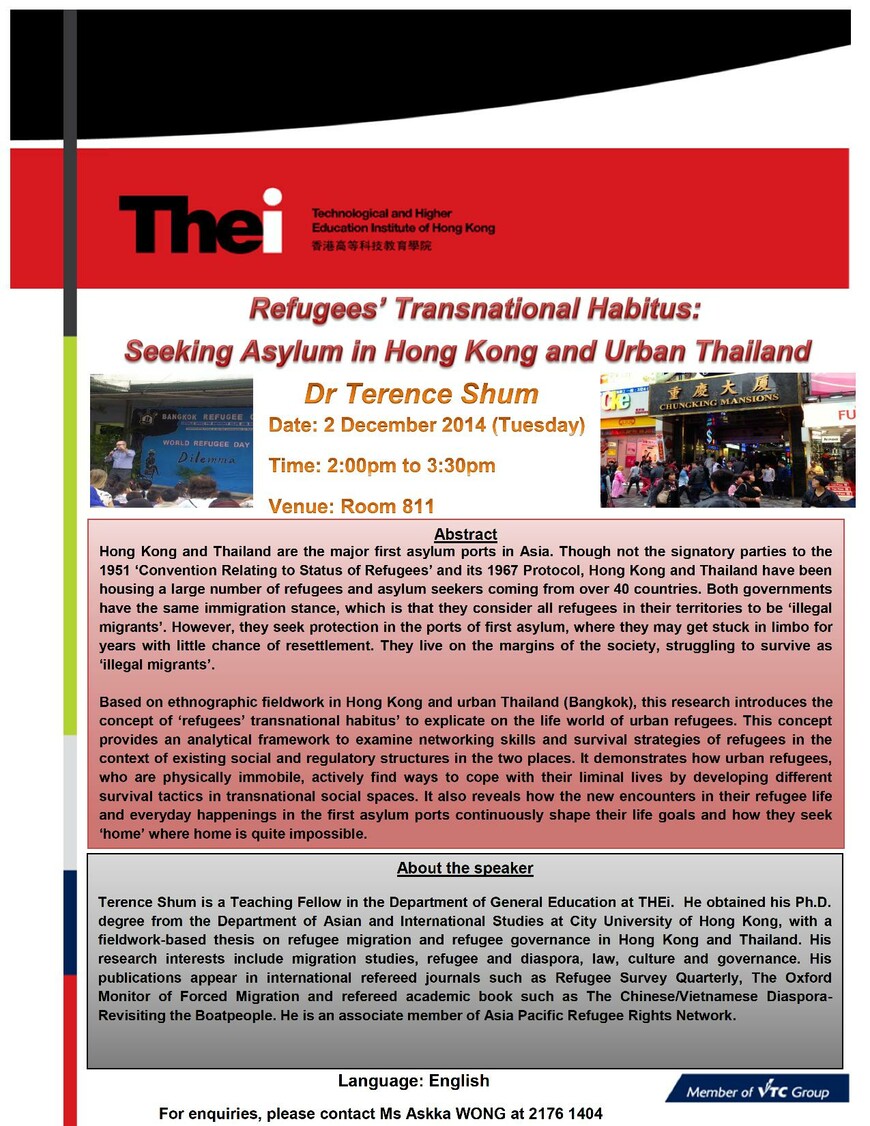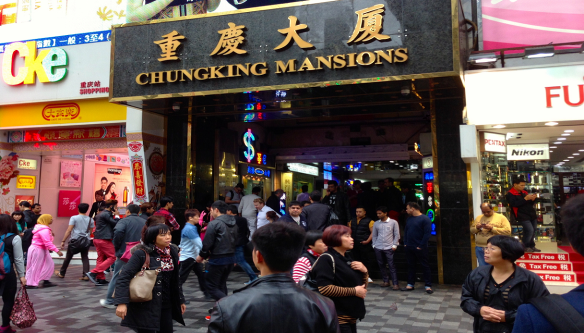02dec2014
Refugees’ Transnational Habitus: Seeking Asylum in Hong Kong and Urban Thailand
Forums, Workshops & Seminars
- Date2 December 2014
- Time2:00pm - 3:30pm
- VenueRoom 811
Refugees’ Transnational Habitus:Seeking Asylum in Hong Kong and Urban ThailandDr Terence Shum
|
|
Date: 2 December 2014 (Tuesday) Time: 2:00pm to 3:30pm Venue: Room 811
|
|
About the speaker Terence Shum is a Teaching Fellow in the Department of General Education at THEi. He obtained his Ph.D. degree from the Department of Asian and International Studies at City University of Hong Kong, with a fieldwork-based thesis on refugee migration and refugee governance in Hong Kong and Thailand. His research interests include migration studies, refugee and diaspora, law, culture and governance. His publications appear in international refereed journals such as Refugee Survey Quarterly, The Oxford Monitor of Forced Migration and refereed academic book such as The Chinese/Vietnamese Diaspora-Revisiting the Boatpeople. He is an associate member of Asia Pacific Refugee Rights Network. |
|
Abstract Hong Kong and Thailand are the major first asylum ports in Asia. Though not the signatory parties to the 1951 ‘Convention Relating to Status of Refugees’ and its 1967 Protocol, Hong Kong and Thailand have been housing a large number of refugees and asylum seekers coming from over 40 countries. Both governments have the same immigration stance, which is that they consider all refugees in their territories to be ‘illegal migrants’. However, they seek protection in the ports of first asylum, where they may get stuck in limbo for years with little chance of resettlement. They live on the margins of the society, struggling to survive as ‘illegal migrants’.
Based on ethnographic fieldwork in Hong Kong and urban Thailand (Bangkok), this research introduces the concept of ‘refugees’ transnational habitus’ to explicate on the life world of urban refugees. This concept provides an analytical framework to examine networking skills and survival strategies of refugees in the context of existing social and regulatory structures in the two places. It demonstrates how urban refugees, who are physically immobile, actively find ways to cope with their liminal lives by developing different survival tactics in transnational social spaces. It also reveals how the new encounters in their refugee life and everyday happenings in the first asylum ports continuously shape their life goals and how they seek ‘home’ where home is quite impossible.
|
|
Language: English For enquiries, please contact Ms Askka WONG at 2176 1404 |


